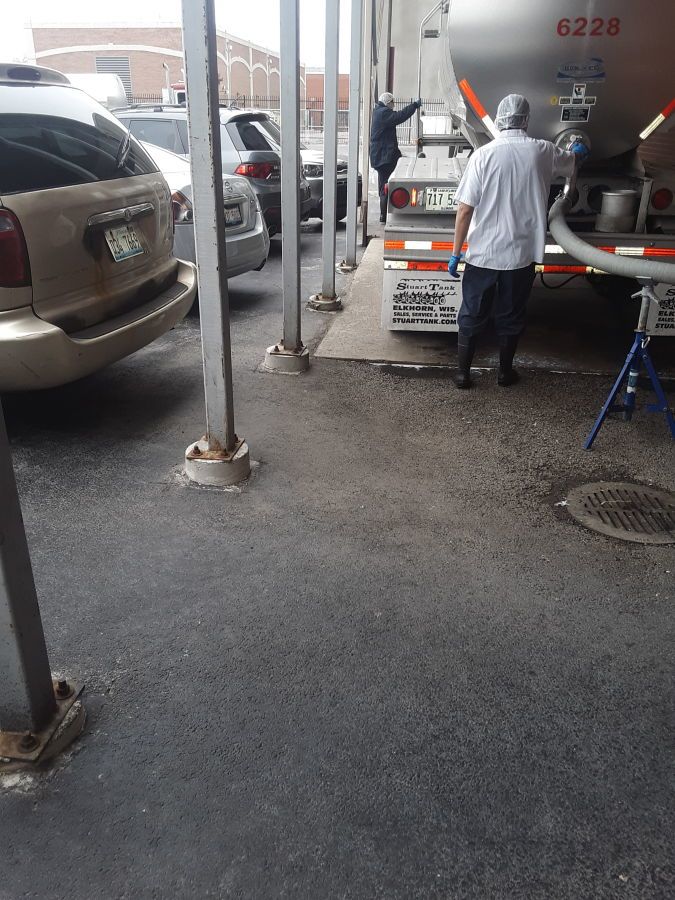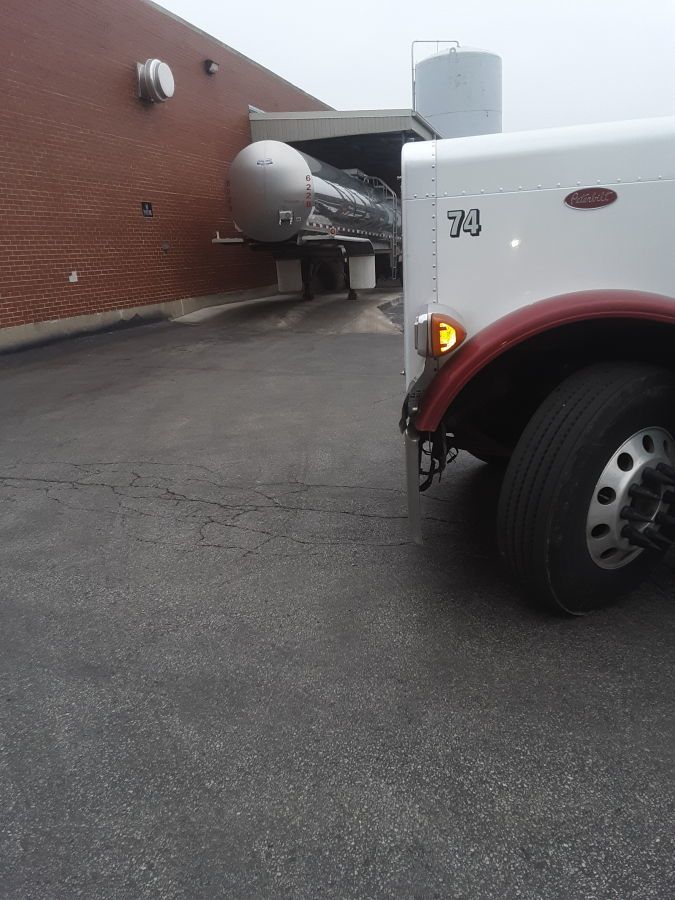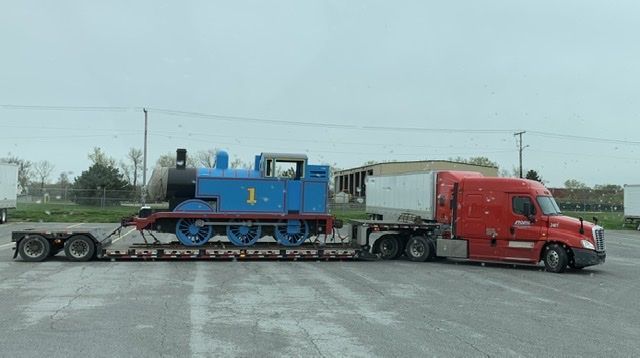Postcards From The Road! (Post Yours Please!)
Topic 26361 | Page 25
This little fella paid me a visit while I was offloading earlier this afternoon; allowed me to get within several feet of it...

Two more:


(It’s a roadrunner)!
And here’s a video clip of him NOT RUNNING!
https://youtu.be/9RsviZ2tjIQ
I hardly ever see any of those guys when out west. A really odd-looking creature, adapted to nature. And they are very fast runners.
BEEP BEEP!
HOS:
Hours Of Service
HOS refers to the logbook hours of service regulations.Yeah, I was very surprised to see him get so close to me; I thought maybe there was a nest nearby, but then saw him picking at and eating something white on the ground. I can’t imagine what it was, because the customer manufactures cardboard. He also appeared to be young... probably hadn’t developed a wariness of the humans yet. When he walked his body pitched forward; you can really tell how well they’ve adapted to running. Very streamlined.
Fueling in Primm NV.

Laura
Fueling in Primm NV.
Laura
That solar ranch reminds me of something from either science fiction or, "Lord of the Rings."
A customer I go to twice a week. An extremely tight fit. Once the tanker in the bay is empty. I have to blindside the loaded one I'm hooked too in between two sides of cars. Drop it. Grab the now empty trailer in bay take it too the corner of the lot in which it will be partially blocking traffic. Drop it. Go back for the loaded trailer blindside it into the bay. Drop it. Grab the empty and get the hell out. About 30 minutes every time. Usually about 2 to 3 times a day.


TWIC:
Transportation Worker Identification Credential
Truck drivers who regularly pick up from or deliver to the shipping ports will often be required to carry a TWIC card.
Your TWIC is a tamper-resistant biometric card which acts as both your identification in secure areas, as well as an indicator of you having passed the necessary security clearance. TWIC cards are valid for five years. The issuance of TWIC cards is overseen by the Transportation Security Administration and the Department of Homeland Security.
Saw this at our Gary terminal today. I guess Thomas needs a little help getting around now and then.

Terminal:
A facility where trucking companies operate out of, or their "home base" if you will. A lot of major companies have multiple terminals around the country which usually consist of the main office building, a drop lot for trailers, and sometimes a repair shop and wash facilities.
Just following up to mention that under normal conditions, the 16hr exemption could be used only once per week. We haul boxes for food manufacturers, and I personally have not used an exemption a single time during the pandemic. Tyson's and Freshmark (Sugardale Meats) are ticking upwards again, though.
When you say "a 16 hour day" what does it mean? You still couldn't drive past the 14 hr limit. Right? I am asking just so I understand how it is done.
as Marc Lee touched on there is a special rule that applies to home daily drivers but I still can't drive over 11 hours. I often times debate whether or not to mention using the 16 rule because I dont want to confuse new drivers and someone get a violation thinking they're able to use it. Usually I'll post it to help others see that local driving usually isnt the "banker hours" most people think it is. I wont get too in depth but there are requirements that must be met such as returning to home base for the previous 5 consecutive work days among others. An OTR driver isn't allowed to claim this so you won't need to worry about it when you get started in this career. Also, currently in my line or work (delivering groceries) ALL hours or service rules have been suspended by the FMCSA while hauling certain loads due the 'Rona. My employer is allowing us to take advantage of that but the company is still requiring us to take the 30 minute break and 10 hours off before starting another run to help avoid fatigue. Last week I went over my 14 hour clock 3 of the 4 days. 2 days ended up being just over 16. In those 4 days I put in just shy of 57 hours.
OTR:
Over The Road
OTR driving normally means you'll be hauling freight to various customers throughout your company's hauling region. It often entails being gone from home for two to three weeks at a time.
CSA:
Compliance, Safety, Accountability (CSA)
The CSA is a Federal Motor Carrier Safety Administration (FMCSA) initiative to improve large truck and bus safety and ultimately reduce crashes, injuries, and fatalities that are related to commercial motor vehicle
FMCSA:
Federal Motor Carrier Safety Administration
The FMCSA was established within the Department of Transportation on January 1, 2000. Their primary mission is to prevent commercial motor vehicle-related fatalities and injuries.
What Does The FMCSA Do?
- Commercial Drivers' Licenses
- Data and Analysis
- Regulatory Compliance and Enforcement
- Research and Technology
- Safety Assistance
- Support and Information Sharing
Fm:
Dispatcher, Fleet Manager, Driver Manager
The primary person a driver communicates with at his/her company. A dispatcher can play many roles, depending on the company's structure. Dispatchers may assign freight, file requests for home time, relay messages between the driver and management, inform customer service of any delays, change appointment times, and report information to the load planners.HOS:
Hours Of Service
HOS refers to the logbook hours of service regulations.OWI:
Operating While Intoxicated
New Reply:
New! Check out our help videos for a better understanding of our forum features

















Preview:
This topic has the following tags:
Photos Truck Driving Lifestyle Trucking Humor







 TT On Facebook
TT On Facebook
That was very clear and useful. Thank you bro ... I've learned something ... much appreciated.